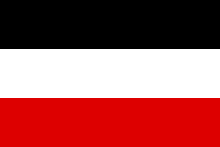1871 in Germany
| |||||
| Decades: |
| ||||
|---|---|---|---|---|---|
| See also: |
Other events of 1871 List of years in Germany | ||||
Events in the year 1871 in Germany.
Incumbents
National level
- Kaiser (from 18 January) — William I
- Chancellor (from 21 March) - Otto von Bismarck
State level
Kingdoms
- King of Bavaria — Ludwig II of Bavaria
- King of Prussia — Kaiser William I
- King of Saxony — John of Saxony
- King of Württemberg — Charles of Württemberg
Grand Duchies
- Grand Duke of Baden — Frederick I
- Grand Duke of Hesse — Louis III
- Grand Duke of Mecklenburg-Schwerin — Frederick Francis II
- Grand Duke of Mecklenburg-Strelitz — Frederick William
- Grand Duke of Oldenburg — Peter II
- Grand Duke of Saxe-Weimar-Eisenach — Charles Alexander
Principalities
- Schaumburg-Lippe — Adolf I, Prince of Schaumburg-Lippe
- Schwarzburg-Rudolstadt — George Albert, Prince of Schwarzburg-Rudolstadt
- Schwarzburg-Sondershausen — Günther Friedrich Karl II, Prince of Schwarzburg-Sondershausen
- Principality of Lippe — Leopold III, Prince of Lippe
- Reuss Elder Line — Heinrich XXII, Prince Reuss of Greiz
- Reuss Younger Line — Heinrich XIV, Prince Reuss Younger Line
- Waldeck and Pyrmont — George Victor, Prince of Waldeck and Pyrmont
Duchies
- Duke of Anhalt — Leopold IV, Duke of Anhalt to 22 May, then Frederick I, Duke of Anhalt
- Duke of Brunswick — William, Duke of Brunswick
- Duke of Saxe-Altenburg — Ernst I, Duke of Saxe-Altenburg
- Duke of Saxe-Coburg and Gotha — Ernest II, Duke of Saxe-Coburg and Gotha
- Duke of Saxe-Meiningen — Georg II, Duke of Saxe-Meiningen
Events
- 3 January — Battle of Bapaume. Prussian victory in continuing Franco-Prussian War.
- 10 January — Besieged city of Péronne surrenders to Prussian forces.
- 10 January-12 January — Battle of Le Mans, ends French resistance in western France.
- 15 January-17 January — Battle of the Lisaine. Prussian victory.
- 18 January — The member-states of the North German Federation and the south German states unite into a single nation-state known as the German Empire. The King of Prussia is declared the first German Emperor as Wilhelm I of Germany.
- 19 January — Battle of St. Quentin. Prussian victory defeated French attempts to relieve the besieged city of Paris.
- 19 –20 January — Battle of Buzenval. Prussian victory.
- 28 January — Siege of Paris ends, with the city falling to Prussian forces.
- 15 February — Armistice signed between France and Prussia.
- 18 February — Siege of Belfort ends with surrender of French garrison.
- 26 February — Treaty of Versailles ends the Franco-Prussian War.
- 21 March — Otto von Bismarck is appointed as the first Imperial Chancellor of the German Empire.
- 10 May — Treaty of Frankfurt is signed with confirming the frontiers between Germany and France.
- 10 December — Otto von Bismarck tries to ban Catholics from the political stage by introducing harsh laws concerning the separation of church and state.
Undated
- The provinces of Alsace and Lorraine are transferred from France to Germany.
- The Constitution of the German Empire abolishes all restrictions on Jewish marriage, choice of occupation, place of residence, and property ownership. Exclusion from government employment and discrimination in social relations remain in effect.
Births
- 4 February — Friedrich Ebert, President of Germany (died 1925)
- 13 February - Joseph Vollmer, German engineer (died 1955)
- 5 March — Rosa Luxemburg, German Jewish politician (died 1919)
- 27 March — Heinrich Mann, German writer (died 1950)
- 6 May — Christian Morgenstern, German author (died 1914)
- 17 July — Lyonel Feininger, German painter (died 1956)
- 13 August - Karl Liebknecht, German politician (died 1919)
Deaths
- 22 May — Leopold IV, Duke of Anhalt (born 1794)
References
This article is issued from Wikipedia - version of the 2/12/2016. The text is available under the Creative Commons Attribution/Share Alike but additional terms may apply for the media files.
